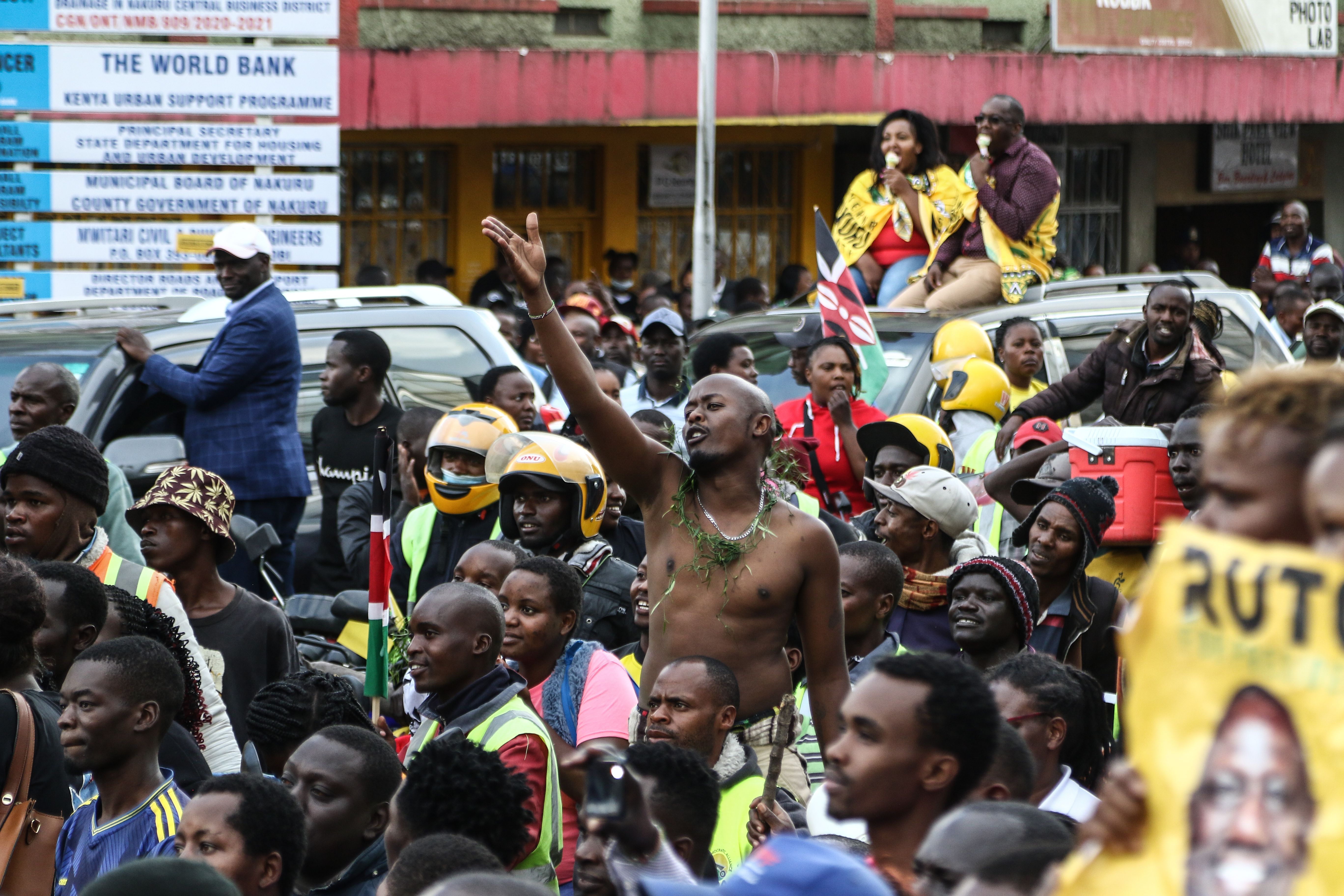Sub-Saharan Africa
Sub-Saharan Africa is not monolithic. While crises in the Sahel have attracted a great deal of attention, other regions also need to be monitored, and not just through the prism of security.
Related Subjects

Claiming "The People": Youth Booms, Ailing Authoritarians and "Populist" Politics in Kenya, Uganda, and Tanzania

This study analyses the emergence of so-called “populist” political tendencies in three East African countries: Kenya, Uganda and Tanzania. It builds its analysis on a wider discussion of the term “populism”, its use and applicability in (eastern) African settings before going on to examine the drivers of three cases of populism: William Ruto’s 2022 election victory in Kenya and the “Hustler Nation”; Bobi Wine’s opposition to Yoweri Museveni in Uganda; and John Magufuli highly personal style of government in Tanzania.
The Difficult Issue of College Rape in America
Cette Actuelle est la quatrième d'une série de quatre Chroniques américaines sur l'éducation aux Etats-Unis, publiées cette semaine.

International Relations: the Era of Anthropologists
Both perpetrators and forms of violence change. States are no longer the central referents of contemporary conflicts. We can no longer understand them as the outcome of a linear history starting from tribal societies and leading to Western political structures.

The Central African Republic: Analysis of a Largely Unknown Crisis
Displaced peoples, insecurity over food and sanitation, economic devastation, worsening community tensions: the Central African Republic is going through what must be the worst crisis in its history.
Gas in Mozambique: a High-risk Economic Revolution
Since oil was discovered in Uganda in 2006, East Africa has been an arena for a race in the exploration for hydro-carbons. Yet the oil reserves in Uganda, the more recent and modest ones in Kenya and the few pockets of gas in Ethiopia are on a completely different scale from the enormous gas resources discovered since 2010 in the off-shore waters of Mozambique and Tanzania.
The Mining Boom in the Sahel Region: Will the Development Last?
The Sahel, often discussed on account of its problems and crises – in particular recently, in view of the crisis in Mali – is in actual fact experiencing a new positive economic era, like the rest of the African continent. For the five countries of the Sahel region we shall be examining – Mauritania, Senegal, Mali, Burkina Faso and Niger – this favourable evolution, although it varies from country to country, is based on booming extractive industries.
France and the Fight against Terrorism in the Sahel: The History of a Difficult Leadership Role
Except for its extreme poverty and the disastrous effects of a series of droughts, the Sahel region has been largely out of the spotlight of international attention in the past. Yet the rise of terrorism and especially the creation of Al-Qaida in the Islamic Maghreb (AQIM) in 2007 brought the region into the focus of world politics. Initially, AQIM"s activities in the Sahel mainly posed a threat to the stability of the Sahelian states themselves. In an effort to internationalize its agenda, however, AQIM also started targeting Western countries.
A Class Defined "by Consumption": The Grocery-Shopping Practices of the Lower-Middle Classes in Johannesburg, South Africa
The black middle class in Johannesburg is a much debated but ill-defined phenomenon, treated more often by economic players than by social scientists. Far from static and clear, the concept of the middle class is for us relevant insofar as it reveals crucial dynamics of the society.
The Sahel: A Crossroads between Criminality and Terrorism
Besides the ongoing political conundrum in Mali, it is the entire West African region, from Guinea Bissau to Mali, which is under threat of destabilization. Indeed, for many years now, terrorists and drugs traffickers have been synergizing their respective illegal activities, transforming the Sahel into a narcoterrorist zone. As a result, the Sahel has become a dangerous crossroads for drugs, crime, terrorism and insurgency.
How to Create a Public Policy in a Failed State: The Challenge of Securing Land Rights in Eastern Congo
In the Democratic Republic of the Congo (DRC) 32 years of dictatorship and almost ten years of war have bled the country dry and left its administration incapable of providing the population with basic services and the government incapable of applying or even formulating public policy.

Quand les embouteillages " créent " la ville - L'influence de la congestion sur la structure et l'économie urbaines à Accra (Ghana)
Support independent French research
Ifri, a foundation recognized as being of public utility, relies largely on private donors – companies and individuals – to guarantee its sustainability and intellectual independence. Through their funding, donors help maintain the Institute's position among the world's leading think tanks. By benefiting from an internationally recognized network and expertise, donors refine their understanding of geopolitical risk and its consequences on global politics and the economy. In 2025, Ifri supports more than 80 French and foreign companies and organizations.








